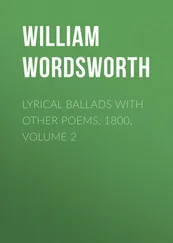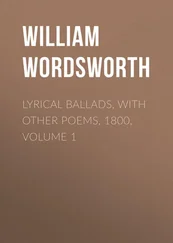Samuel Coleridge - Lyrical Ballads, With a Few Other Poems (1798)
Здесь есть возможность читать онлайн «Samuel Coleridge - Lyrical Ballads, With a Few Other Poems (1798)» весь текст электронной книги совершенно бесплатно (целиком полную версию без сокращений). В некоторых случаях можно слушать аудио, скачать через торрент в формате fb2 и присутствует краткое содержание. Год выпуска: 2005, Жанр: Поэзия, на английском языке. Описание произведения, (предисловие) а так же отзывы посетителей доступны на портале библиотеки ЛибКат.
- Название:Lyrical Ballads, With a Few Other Poems (1798)
- Автор:
- Жанр:
- Год:2005
- ISBN:нет данных
- Рейтинг книги:5 / 5. Голосов: 1
-
Избранное:Добавить в избранное
- Отзывы:
-
Ваша оценка:
- 100
- 1
- 2
- 3
- 4
- 5
Lyrical Ballads, With a Few Other Poems (1798): краткое содержание, описание и аннотация
Предлагаем к чтению аннотацию, описание, краткое содержание или предисловие (зависит от того, что написал сам автор книги «Lyrical Ballads, With a Few Other Poems (1798)»). Если вы не нашли необходимую информацию о книге — напишите в комментариях, мы постараемся отыскать её.
Lyrical Ballads, With a Few Other Poems (1798) — читать онлайн бесплатно полную книгу (весь текст) целиком
Ниже представлен текст книги, разбитый по страницам. Система сохранения места последней прочитанной страницы, позволяет с удобством читать онлайн бесплатно книгу «Lyrical Ballads, With a Few Other Poems (1798)», без необходимости каждый раз заново искать на чём Вы остановились. Поставьте закладку, и сможете в любой момент перейти на страницу, на которой закончили чтение.
Интервал:
Закладка:
"Oh! Johnny, never mind the Doctor;
"You've done your best, and that is all."
She took the reins, when this was said,
And gently turned the pony's head
From the loud water-fall.
By this the stars were almost gone,
The moon was setting on the hill,
So pale you scarcely looked at her:
The little birds began to stir,
Though yet their tongues were still.
The pony, Betty, and her boy,
Wind slowly through the woody dale:
And who is she, be-times abroad,
That hobbles up the steep rough road?
Who is it, but old Susan Gale?
Long Susan lay deep lost in thought,
And many dreadful fears beset her,
Both for her messenger and nurse;
And as her mind grew worse and worse,
Her body it grew better.
She turned, she toss'd herself in bed,
On all sides doubts and terrors met her;
Point after point did she discuss;
And while her mind was fighting thus,
Her body still grew better.
"Alas! what is become of them?
"These fears can never be endured,
"I'll to the wood."—The word scarce said,
Did Susan rise up from her bed,
As if by magic cured.
Away she posts up hill and down,
And to the wood at length is come,
She spies her friends, she shouts a greeting;
Oh me! it is a merry meeting,
As ever was in Christendom.
The owls have hardly sung their last,
While our four travellers homeward wend;
The owls have hooted all night long,
And with the owls began my song,
And with the owls must end.
For while they all were travelling home,
Cried Betty, "Tell us Johnny, do,
"Where all this long night you have been,
"What you have heard, what you have seen,
"And Johnny, mind you tell us true."
Now Johnny all night long had heard
The owls in tuneful concert strive;
No doubt too he the moon had seen;
For in the moonlight he had been
From eight o'clock till five.
And thus to Betty's question, he
Made answer, like a traveller bold,
(His very words I give to you,)
"The cocks did crow to-whoo, to-whoo,
"And the sun did shine so cold."
—Thus answered Johnny in his glory,
And that was all his travel's story.
LINES WRITTEN NEAR RICHMOND, UPON THE THAMES, AT EVENING.
How rich the wave, in front, imprest
With evening-twilight's summer hues,
While, facing thus the crimson west,
The boat her silent path pursues!
And see how dark the backward stream!
A little moment past, so smiling!
And still, perhaps, with faithless gleam,
Some other loiterer beguiling.
Such views the youthful bard allure,
But, heedless of the following gloom,
He deems their colours shall endure
'Till peace go with him to the tomb.
—And let him nurse his fond deceit,
And what if he must die in sorrow!
Who would not cherish dreams so sweet,
Though grief and pain may come to-morrow?
Glide gently, thus for ever glide,
O Thames! that other bards may see,
As lovely visions by thy side
As now, fair river! come to me.
Oh glide, fair stream! for ever so;
Thy quiet soul on all bestowing,
'Till all our minds for ever flow,
As thy deep waters now are flowing.
Vain thought! yet be as now thou art,
That in thy waters may be seen
The image of a poet's heart,
How bright, how solemn, how serene!
Such heart did once the poet bless,
Who, pouring here a [3] Collins's Ode on the death of Thomson, the last written, I believe, of the poems which were published during his life-time. This Ode is also alluded to in the next stanza.
later ditty,
Could find no refuge from distress,
But in the milder grief of pity.
Remembrance! as we glide along,
For him suspend the dashing oar,
And pray that never child of Song
May know his freezing sorrows more.
How calm! how still! the only sound,
The dripping of the oar suspended!
—The evening darkness gathers round
By virtue's holiest powers attended.
EXPOSTULATION AND REPLY.
"Why William, on that old grey stone,
"Thus for the length of half a day,
"Why William, sit you thus alone,
"And dream your time away?
"Where are your books? that light bequeath'd
"To beings else forlorn and blind!
"Up! Up! and drink the spirit breath'd
"From dead men to their kind.
"You look round on your mother earth,
"As if she for no purpose bore you;
"As if you were her first-born birth,
"And none had lived before you!"
One morning thus, by Esthwaite lake,
When life was sweet I knew not why,
To me my good friend Matthew spake,
And thus I made reply.
"The eye it cannot chuse but see,
"We cannot bid the ear be still;
"Our bodies feel, where'er they be,
"Against, or with our will.
"Nor less I deem that there are powers,
"Which of themselves our minds impress,
"That we can feed this mind of ours,
"In a wise passiveness.
"Think you, mid all this mighty sum
"Of things for ever speaking,
"That nothing of itself will come,
"But we must still be seeking?
"—Then ask not wherefore, here, alone,
"Conversing as I may,
"I sit upon this old grey stone,
"And dream my time away."
THE TABLES TURNED; AN EVENING SCENE, ON THE SAME SUBJECT.
Up! up! my friend, and clear your looks,
Why all this toil and trouble?
Up! up! my friend, and quit your books,
Or surely you'll grow double.
The sun above the mountain's head,
A freshening lustre mellow,
Through all the long green fields has spread,
His first sweet evening yellow.
Books! 'tis a dull and endless strife,
Come, hear the woodland linnet,
How sweet his music; on my life
There's more of wisdom in it.
And hark! how blithe the throstle sings!
And he is no mean preacher;
Come forth into the light of things,
Let Nature be your teacher.
She has a world of ready wealth,
Our minds and hearts to bless—
Spontaneous wisdom breathed by health,
Truth breathed by chearfulness.
One impulse from a vernal wood
May teach you more of man;
Of moral evil and of good,
Than all the sages can.
Sweet is the lore which nature brings;
Our meddling intellect
Misshapes the beauteous forms of things;
—We murder to dissect.
Enough of science and of art;
Close up these barren leaves;
Come forth, and bring with you a heart
That watches and receives.
OLD MAN TRAVELLING; ANIMAL TRANQUILLITY AND DECAY, A SKETCH.
The little hedge-row birds,
That peck along the road, regard him not.
He travels on, and in his face, his step,
His gait, is one expression; every limb,
His look and bending figure, all bespeak
A man who does not move with pain, but moves
With thought—He is insensibly subdued
To settled quiet: he is one by whom
All effort seems forgotten, one to whom
Long patience has such mild composure given,
That patience now doth seem a thing, of which
He hath no need. He is by nature led
To peace so perfect, that the young behold
With envy, what the old man hardly feels.
—I asked him whither he was bound, and what
The object of his journey; he replied
"Sir! I am going many miles to take
"A last leave of my son, a mariner,
"Who from a sea-fight has been brought to Falmouth,
And there is dying in an hospital."
Интервал:
Закладка:
Похожие книги на «Lyrical Ballads, With a Few Other Poems (1798)»
Представляем Вашему вниманию похожие книги на «Lyrical Ballads, With a Few Other Poems (1798)» списком для выбора. Мы отобрали схожую по названию и смыслу литературу в надежде предоставить читателям больше вариантов отыскать новые, интересные, ещё непрочитанные произведения.
Обсуждение, отзывы о книге «Lyrical Ballads, With a Few Other Poems (1798)» и просто собственные мнения читателей. Оставьте ваши комментарии, напишите, что Вы думаете о произведении, его смысле или главных героях. Укажите что конкретно понравилось, а что нет, и почему Вы так считаете.












